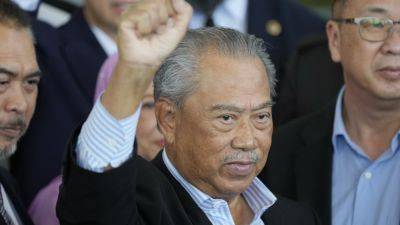Taliban courts Malaysia for trade and investment amid Afghanistan’s economic crisis
While Kuala Lumpur does not officially recognise the Taliban government, Malaysian officials, NGOs and business officials have been visiting Afghanistan to explore ways to establish ties with various stakeholders.
“We would like to have good and positive relations with Malaysia and have constructive cooperation in various fields,” Taliban spokesman Suhail Shaheen told This Week In Asia.
“We view Malaysia as a potential trading and investment partner. Particularly, they can help Afghanistan in the higher education sector.
“We welcome Prime Minister Anwar Ibrahim’s visit to Afghanistan any time but it is up to him when to visit Afghanistan,” Shaheen added, noting that such high-level trips were important to pave the way for positive relations between the two countries in various fields.
Analysts said the Taliban is eager to economically engage with countries like Malaysia to help stem the financial fallout from the militant group retaking control of Afghanistan three years ago.
The World Bank said in an April report that Afghanistan’s economy contracted by more than 26 per cent from 2021 to 2022. The threat of economic stagnation looms large until at least 2025, likely worsening poverty and unemployment, while food insecurity is expected to increase.
Abdul Razak Ahmad, the founding director of Kuala Lumpur-based Bait Al Amanah think tank who met with Shaheen in May, does not think any high-level visit “should be expected in the near future” since Malaysia “has not officially recognised the regime in Afghanistan”.
“In my view, it is a matter of time that Malaysia would need to consider this [recognising Taliban rule] seriously,” added Abdul Razak, who said he has spoken with the Taliban on “many occasions”.
“This would depend on







